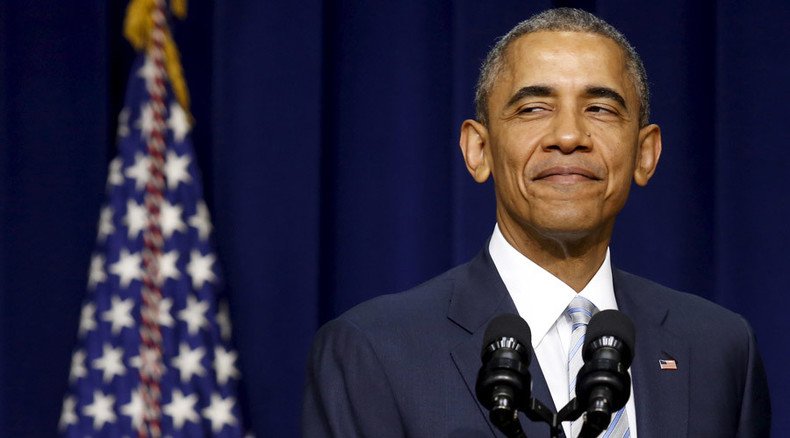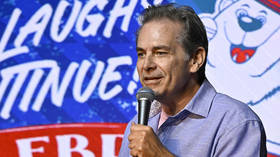Obama’s behavioral science order: Efficiency or manipulation?

President Barack Obama ordered government agencies to use behavioral science insights to ‘better serve the American people.’ While insiders are praising the step as historic, critics are blasting the measure – and the president – as manipulative.
“To more fully realize the benefits of behavioral insights and deliver better results at a lower cost for the American people, the Federal Government should design its policies and programs to reflect our best understanding of how people engage with, participate in, use, and respond to those policies and programs,” says the executive order issued by the president Tuesday.
Obama instructed federal agencies to identify policies and operations where applying behavioral science could improve “public welfare, program outcomes, and program cost effectiveness,” develop strategies for using behavior science insights, and recruit behavioral experts as necessary.
"Nudge": Obama Orders Behavioral Experiments On American Public
http://t.co/5SIbG7NZlf#tcot#pjnet#p2pic.twitter.com/rih86kN7qY
— pete602 (@petefrt) September 16, 2015While the White House says it seeks to “improve how information is presented” to the citizenry in order to “better serve the American people,” critics see the initiative as an underhanded attempt to manipulate, rather than persuade.
According to the Daily Caller, the behavioral science initiative is based on the research by University of Chicago economist Richard Thaler and Harvard law school professor Cass Sunstein. In their 2008 book 'Nudge,' Thaler and Sunstein argued that government policies can be presented in such a way to “nudge” citizens towards certain behaviors. While the programs are described as a way to reduce spending or improve performance, the desired behaviors always advance the government’s goals.
Sunstein was Obama’s former regulatory czar, who left the White House in 2012. He was in attendance on Tuesday, praising the executive order as “historic.”
Historic development: President Obama issues a new Executive Order directing agencies to use behavioral science.
https://t.co/c6imKdZNQ4
— Cass Sunstein (@CassSunstein) September 15, 2015On the other hand, political scientist Charles Murray, author of the Bell Curve (1994) and Coming Apart (2012), blasted the order as a “disaster” and described behavioral sciences as “excruciatingly” politically correct.
Disaster. The behavioral sciences are most hostile to the real state of knowledge & excruciatingly PC. https://t.co/jS7MzmOwvI
— Charles Murray (@charlesmurray) September 16, 2015In Obama’s executive order, government agencies are told to “carefully consider how the presentation and structure of those choices, including the order, number, and arrangement of options, can most effectively promote public welfare, as appropriate, giving particular consideration to the selection and setting of default options.”
To illustrate that in practice, Sunstein has proposed automatically enrolling utility customers in clean energy plans, unless they opt out. While the plans would be more expensive, he argued most people would be fine with paying more for “green” energy, according to USA Today.
Businesses have long known that customers will go along with the more expensive default options because changing them requires time and effort. However, consumer backlash is pushing many companies to at least make opt-outs more easily available. For example, Facebook is about to start featuring advertising based on behavioral data – the users’ browsing habits – but not before offering its customers the chance to opt out.
Another example of “nudging” in action is the use of suggestive language for government programs and laws. Thus the extraordinary measures implemented after the 9/11 terrorist attacks were dubbed the “PATRIOT Act,” the law reauthorizing bulk NSA surveillance of Americans became the “USA FREEDOM Act,” while the very executive order directing federal agencies to apply behavioral science had “to Better Serve the American People,” in its title.
This is not behavioral economics - this is manipulation.
https://t.co/18ZEDg5USv
— Scott T. Weathers (@sctwea) September 16, 2015










